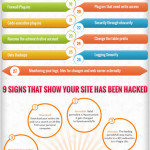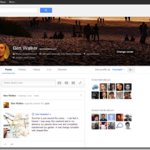‘Phishing scam’ is the umbrella term for any attempt made to acquire sensitive information such as usernames, passwords and bank account details for malicious reasons via an electronic communication.
Phishing scams come in a wide range of guises which can make them difficult to spot. While the emails from ‘Nigerian princes’ and ‘mysterious benefactors’ might be easy to identify as scams, there are also a number of other attacks that are not quite so obvious. The trouble is that many of these scams are shrouded in myth and misinformation, which can lead to complacency and cause us to miss those all important warning signs.
In this article, we’re going to take a look at five phishing scams you need to be aware of and the myths and misinformation that surrounds them.
- Dating fraud
Myth: You can trust the people you meet on dating sites because they were fully vetted before they joined.
Reality: Most dating sites allow people to join without carrying out any kind of vetting procedure at all, so you should always be cautious about the people you meet online. If someone starts asking for money to help a sick family member, it’s time to run a mile!
- Spoofing
Myth: Only genuine emails make it through your spam filter.
Reality: Phishing attacks involving emails and SMS messages purporting to be from legitimate businesses are one of the leading causes of financial loss. A recent example occurred in South Africa, when messages supposedly from the short-term lender Wonga South Africa were sent to South African web users whose email contacts had been leaked from an unknown source. In reality, the emails and SMS messages were sent by a scammer. Unfortunately, this elaborate scam left some customers out of pocket after responding to the false notifications with sensitive information.
- Public Wi-Fi scams
Myth: Public Wi-Fi is safe and should not stop you doing your online shopping.
Reality: Unless you have taken steps to encrypt your data, anything you send via public Wi-Fi, such as personal information and other sensitive data, is a risk. The risks are even greater if you do not have up-to-date security software in place. Here are some tips to help you stay safe on public Wi-Fi.
- Social engineering
Myth: It doesn’t matter what information I post on social media because only my friends will be able to see it.
Reality: If you don’t set up your privacy settings properly or accept people you don’t know as friends, you risk giving fraudsters access to information they could use against you. Personal details can be used to better understand your habits and vulnerabilities. Scammers can even use the information you provide to successfully guess your password.
- Anti-virus software
Myth: If I have anti-virus software installed on my computer so I don’t need to worry about viruses from phishing scams.
Reality: While up-to-date anti-virus software will provide an important layer of protection, it can still be bypassed by some of the more sophisticated viruses and scams. It also will not stop all phishing emails from getting through, so it’s essential you remain vigilant even when you have the latest security software installed.





![Best And Simple Practices Available For Your SEO Strategy [infographic]](https://www.iblogzone.com/wp-content/uploads/2015/11/SEO-strategy-infographic-150x150.png)



